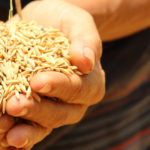New Publication In April 2023, IFPRI researchers Akhter Ahmed, M. Mehrab Bakhtiar, Daniel O. Gilligan, John Hoddinott, and Shalini Roy published the open access article, "Private transfers, public transfers, and food insecurity during the time of COVID-19: Evidence from Bangladesh" in Applied Economic Perspectives and Policy. Abstract In the aftermath of the COVID-19 pandemic, interest […]
How can safety nets reduce violence against women in Bangladesh?
Direct cash transfers coupled with behaviour change communication (BCC) can reduce violence against women inflicted by their partners by more than a quarter, according to a study. The study said the reduction in violence was found six to 10 months after the intervention ended, providing the first evidence that such benefits can be sustained by […]
A Catch-22 in Safety Net Targeting in Bangladesh (BLOG)
A Bureaucratic Catch-22: Study in Bangladesh Shows How Safety Nets Can Overlook the Poorest Around the world, governments and development partners make hard choices on how to invest their limited resources to help the needy. But in a country like Bangladesh, where almost one fourth of the population of 165 million lives below the poverty line, […]
Leveraging Social Protection for Improved Nutrition
Child stunting–that is, when children are too short for their age–is a serious issue. It is a consequence of inadequate nutrition and health, which reduce the chance that children will develop well, do well in school, earn a good living, and escape poverty. Although stunting in Bangladesh has dropped a lot over the past two […]
Improving Social Safety Nets
Social safety nets combined with nutrition behavior-change communication reduces childhood stunting.



